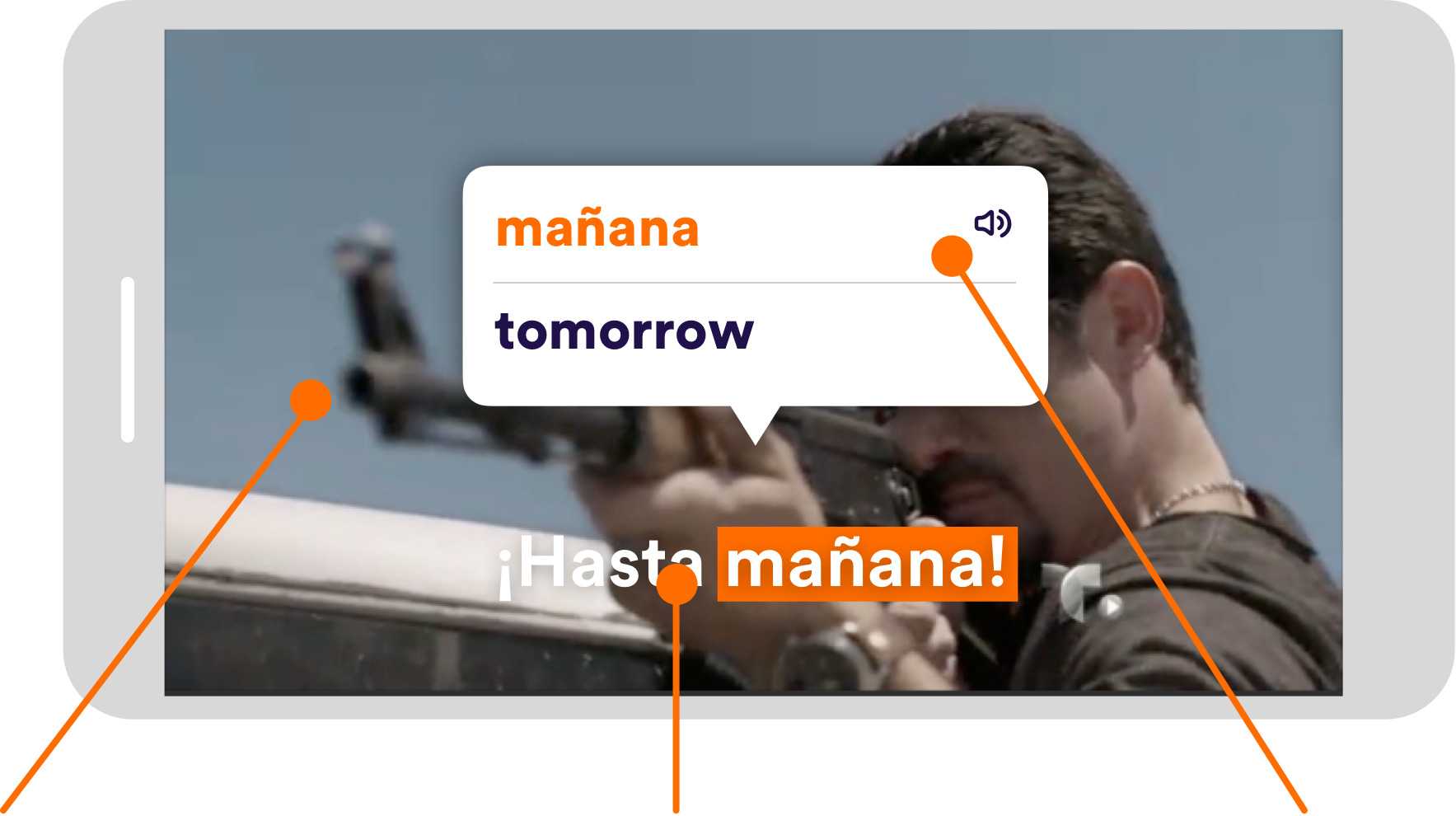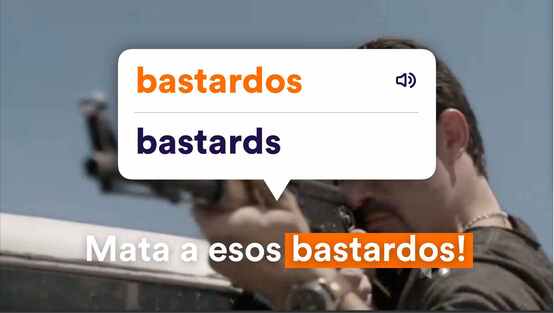Are you interested in soccer? Do you have a brother you want to strangle several times a day? If you answered Yes to either of these two questions, Club de Cuervos is the perfect show for you. Learn Spanish while you laugh with Isabel and Chava Iglesias, two siblings who inherited the Cuervos de Nuevo Toledo, their father's soccer club. Watch as the siblings compete with each other for the team's presidency, and how their decisions affect anyone who gets in their way. This Lingopie guide will allow you to explore vocabulary as you watch each episode. Here you will find new words, Mexican slang and even a fun quiz to test your knowledge about the show. So, what are you waiting for to get started?
¿Estás interesado en el fútbol? ¿Tienes un hermano al que te provoca ahorcar varias veces al día? Si respondiste Sí a alguna de estas dos preguntas, Club de Cuervos es la serie perfecta para ti. Aprende español mientras te ríes con Isabel y Chava Iglesias, dos hermanos que heredan a los Cuervos de Nuevo Toledo , el club de fútbol de su padre. Mira cómo los hermanos compiten entre ellos por alcanzar la presidencia del equipo, y cómo sus decisiones afectan a todo aquel que se les cruce en el camino. Esta guía de Lingopie te permitirá explorar vocabulario mientras ves cada episodio. Aquí podras encontrar palabras nuevas, jerga Mexicana e incluso un divertido quiz para poner a prueba tu conocimiento acerca de la serie, así que, ¿Qué estás esperando para empezar?
used in Club de Cuervos | Club of Crows for you to have dialogues like a native Spanish speaker
I don't trust it
You know how people say you should trust your instincts? This expression is used when you have a bad feeling about something but you don't actually know why. So, next time someone offers you a really good deal and you're like 'Hmm, this is kind of suspicious' you can say: 'Esto me da mala espina'. On the contrary, if you're feeling good about something you can say: 'Esto me da buena espina'To ignore everything
The exact translation to this phrase would be To pass everything by the balls. In reality, it means to ignore something or someone. When Félix tells Chava 'No te vas a pasar todo por los huevos' he's saying he won't allow him to ignore everyone and make decisions without consulting someone first.What's up
These two words are heard multiple times a day if you're in Mexico, so if you want to sound like a native speaker you should start using them! We know that 'What a fart' sounds like a weird thing to be said so frequently but for anyone who speaks spanish it's just a casual way to say 'what's up'. This phrase can also be said in an incredulous tone like. 'Qué pedo, güey', which basically means 'What the hell, dude'It's hard
This phrase is extremely common in Mexico and it can either be a good or a bad thing. So if you just took a really difficult test you could say 'El examen estuvo cañón' but also if someone showed you a cool project they've been working on you could say: '¡Güey, está cañón!'. So really, it all depends on the context!To beat up
If someone ever says this to you, this means they're about to beat you up. This phrase can be heard mostly when people are fighting and it works perfectly well as a threat, but you can also use it for yourself. For example, imagine you're on your bike, you're going a little too fast and you suddenly realize the brakes aren't working, that's a perfect situation where you could think 'Me voy a partir la madre'Make a fuss
Chava says this to Isabel several times throughout the show to get her to leave him alone and stop nagging him. 'No vayas a armar un pedo por esto' means 'don't make a fuss about this' . Keep in mind that 'pedo' has dozens of meanings in Mexico, so this is just one example of how it can be used. There's also: '¿Qué pedo, güey?' (What the hell, dude?) or 'Todos estábamos bien pedos' (We were all pretty drunk) ... and many more!To help
The phrase literally means to give someone a hand, so you hear it often when anyone is asking for help. Someone could say 'Ey, échame una mano' which means 'Hey, give me a hand' or if you're the one offering help you can ask '¿Quieres que te eche una mano?' (Do you want me to give you a hand?)No way
This is also an expression that can have multiple meanings, but it is often used when you're surprised or incredulous about something. It can also mean 'don't mess around' or 'Don't lie to me'. If you're watching the show you probably know that basically half of Chava's vocabulary consists of this phrase said with different tones and almost everytime accompanied by 'Güey': 'No mames, güey' (No way, dude)I don't care
You can use this phrase when you want to let someone know you really couldn't care less about something. It's not a very formal expression so don't go around saying it to your boss when he asks for your insight on something! But let's say if someone is insulting you, you can go ahead and tell them you don't care by saying: 'Me vale madres'with our custom made Club de Cuervos | Club of Crows quiz
Binge watching the latest season of a great TV show is everyone's guilty pleasure. But we just can’t
seem to find 1 hour per week to dedicate to our Spanish studies. Now imagine a world where you could
learn Spanish just by watching great Spanish TV shows. Well that’s exactly “The Binge Learning
Method by Lingopie.”
Choose a great Spanish TV show from our extensive catalog of TV Shows. Each Spanish TV show is
displayed with Spanish subtitles. Start watching and when you don’t understand something, just click
on that word or phrase and get an instant translation. Lingopie saves all your words and phrases so
you can review them afterwards with built-in SRS language learning tools. As you binge watch from
episode to episode, you’ll quickly notice that you understand more & more in record time. The more
you watch, the more you learn. That’s the “Binge Learning Method.”
LingoPie makes learning addictive! Using interactive closed captions and
great foriegn contnent, learning a new language is as fun as watching TV.


and dozens of other great shows!


Enjoy Great Shows
Highly acclaimed
Spanish TV shows
Click & Translate
Interactive, clickable,
same language captions
Learn From Context
Contextual translations,
grammar and sample sentence
Highly acclaimed Spanish TV shows.
Interactive, clickable, same
language captions
Contextual translations, grammar and
sample sentence